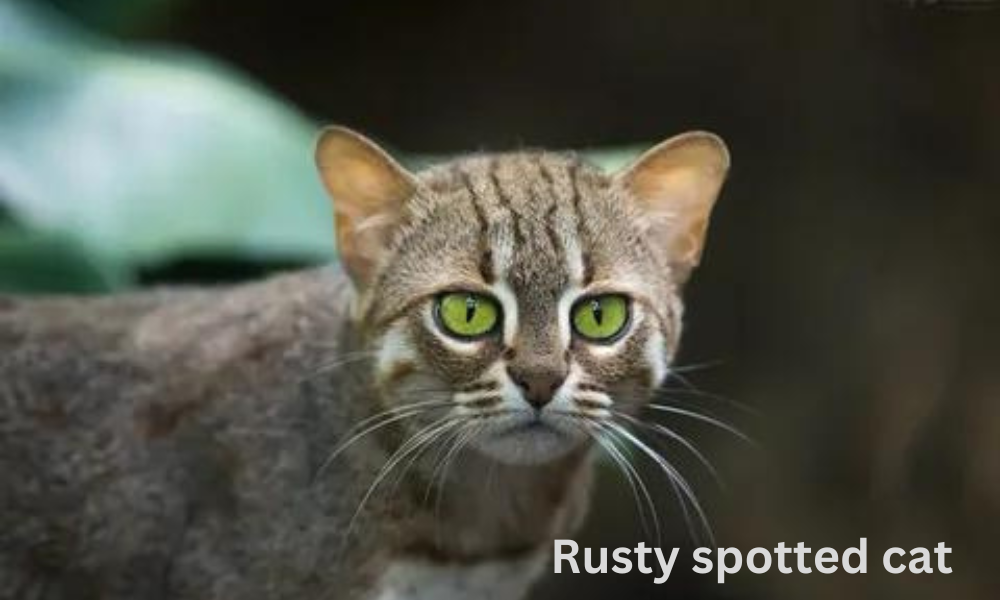Animal lovers have long been drawn to and fascinated by the world of exotic pets. Many people have the urge to own a rare or unusual animal, but the legal framework governing the ownership of exotic species can be perplexing and scary. The rusty spotted cat has been a well-liked option in recent years for people looking for a distinctive pet. It can be difficult to determine whether it is legal to own one of these stunning felines, though.
We shall explore the legal aspects of owning a Rusty spotted cat in this blog post. We will look at the different laws that are in place to control theownership of this endangered species, such as those that deal with licenses and permits. We will also look at the moral ramifications of owning an exotic animal and provide advice on how to make sure your pet is receiving the proper care and living conditions. Whether you want to keep an unusual pet or are just curious about the laws surrounding it, this
An Introduction to the Rusty Spotted Cat
Small wild cat species known as the Prionailurus rubiginosus, or “rusty spotted cat,” are primarily found in India and Sri Lanka. The International Union for Conservation of Nature (IUCN) classifies them as a near-threatened species because of their dwindling number and fragmented habitat. Due to their attractive and distinctive appearance, the Rusty Spotted Cat has seen an increase in popularity as a pet in recent years. It is crucial to remember that keeping a Rusty Spotted Cat as a pet may have moral and legal repercussions. This article seeks to give a general overview of the rusty spotted cat,
including information on its legal standing as a pet and things to take into account before getting one.
The Rusty Spotted Cat’s Endangered Species Status
One of the tiniest wild cat species in the world, the Rusty Spotted Cat (Prionailurus rubiginosus) is indigenous to Sri Lanka and India on the Indian subcontinent. The population of the Rusty Spotted Cat has dramatically decreased as a result of habitat destruction, poaching, and the illegal pet trade. As a result, the cat is listed as a schedule I protected species under the Wildlife Protection Act of India and is considered to be “Near Threatened” by the International Union for Conservation of Nature (IUCN).
It is crucial to acknowledge the Rusty Spotted Cat’s position as an endangered species and take precautions to prevent its future decline. Individuals must follow all laws and rules established by their various governments in order to possess a Rusty Spotted Cat. This includes obtaining the necessary permits or licenses and making sure the cat was obtained in a morally and legally acceptable manner.
Rusty Spotted Cat Legal Protection
All parties involved must pay attention to and abide by the critical issue of the Rusty Spotted Cat’s legal protection. The Rusty Spotted Cat, the smallest wild cat species in the world, is an extremely rare and endangered species that can only be found in India and Sri Lanka. Threats to the cat species include habitat degradation, poaching, and unintentional capture. The Rusty Spotted Cat
and its habitat are protected by international agreements and legal frameworks put in place by the Indian government. The Rusty Spotted Cat is a Schedule I species under the Wildlife Protection Act of 1972, giving it the greatest level of legal protection. Without a permit from the relevant authorities, it is
forbidden to hunt, catch, or trade in this animal. Additionally, the Rusty Spotted Cat has been included to Appendix I of the Convention on International trading in Endangered Species of Wild Fauna and Flora (CITES), making all international trading in the species illegal. To preserve the survival of the
species, it is crucial that people and corporations abide by these legal requirements.
Rules and Legislation Regarding Rusty Spotted Cat Ownership
It’s critical to be knowledgeable about the different laws and rules that control
the ownership of exotic animals, including the rusty spotted cat. State-specific laws, for instance, may ban the ownership of particular animal species in the United States. Furthermore, it’s critical to comprehend any applicable federal rules, such as those outlined in the Endangered Species Act and the Convention on International Trade in Endangered Species (CITES). Anyone thinking about getting a rusty spotted cat or any other exotic pet should thoroughly research the laws and rules that are in force in their particular location and consult with knowledgeable experts, such as lawyers and veterinarians, to ensure compliance with all relevant legal requirements.
Taking Care of Your Rusty Spotted Cat
For those seeking an exotic pet, having a Rusty Spotted Cat can be a special and gratifying experience. However, it is essential to comprehend the legal requirements and obligations that come with responsible ownership before deciding to own one. Due to their protected status under the Convention on International Trade in Endangered Species of Wild Fauna and Flora (CITES), Rusty Spotted Cats may be prohibited to acquire in some nations. It is crucial to check your local rules and ordinances to be sure that having a Rusty Spotted Cat is legal before making a purchase. Once ownership is permitted, it’s critical to give the cat everything it needs for a secure and happy home, including a sizable enclosure, healthy food, and frequent medical checkups. Furthermore, it is crucial to implement proper waste disposal and habitat preservation practices in order to stop the spread of illness and reduce any adverse environmental effects.
In conclusion, even if owning a rusty spotted cat might be allowed in some jurisdictions, it’s crucial to think about the moral ramifications and make sure that doing so is in the cat’s best interests. The rusty spotted cat is a wild species that needs a certain environment and level of care in order to survive. Prioritizing the welfare of this threatened species and assisting in conservation efforts to safeguard them in their native habitat are crucial.














